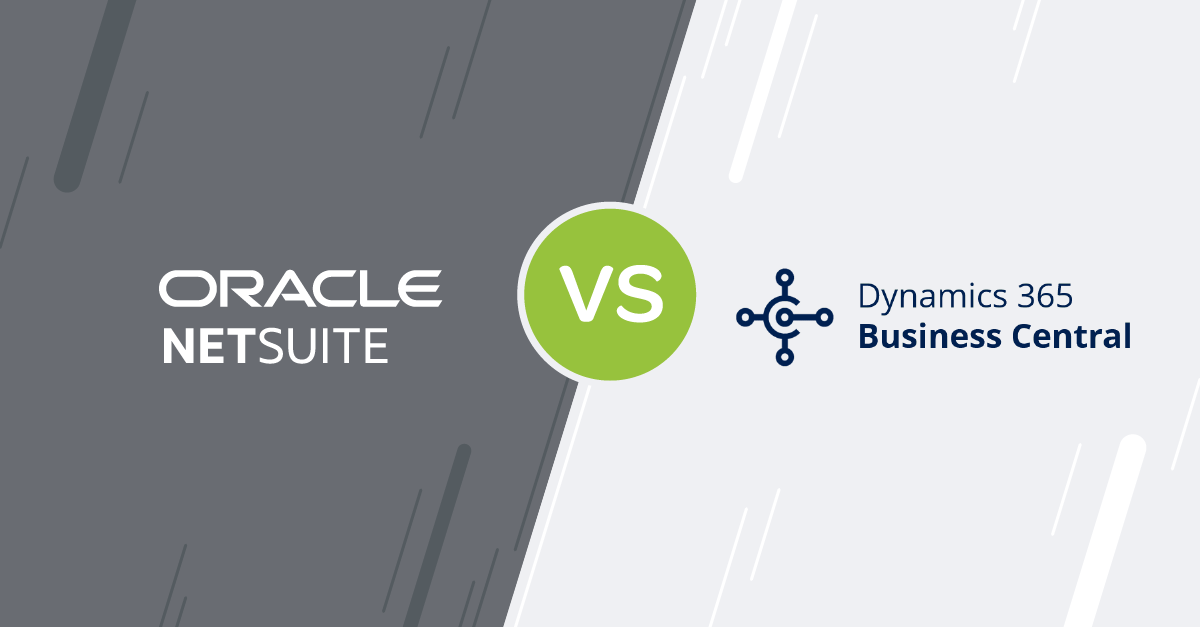Blog
Share this
NetSuite CRM vs. Salesforce: A CRM Comparison

by Jalene Ippolito on February 23, 2022
Over the years, customer relationship management (CRM) software has expanded in functionality to the point that it’s creeping into ERP territory (if you want more on CRM vs. ERP, check out this article). Salesforce CRM is a good example – it's the Cadillac of CRM software for sales and marketing, but has started building out ecommerce and even field service capabilities. This often puts them in competition with NetSuite CRM. Our goal here is to help you make an informed decision about your next CRM by outlining the pros, cons and major differences between Salesforce and NetSuite CRM. Let’s dig in!
Salesforce
There’s no doubt – Salesforce is a leader in the CRM space, owning about 20% of the market. They break out their solutions into ‘clouds’, giving you the flexibility to pick and choose which functions you want to use.
- Sales cloud – contact management, opportunities, lead management, reporting, sales forecasting
- Service cloud – social customer service, omni-channel routing, case management, account and contact management
- Marketing cloud – B2C journey management, B2B marketing automation, digital advertising, email marketing, social media marketing
- Commerce cloud – B2B or B2C web stores, SEO, conversion path optimization, campaigns
Salesforce pros
- Ease of use is number one, which simplifies user training and acceptance.
- A strong ecosystem (AppExchange) offers a wide selection of third-party integrations to expand capabilities.
- Salesforce has a great reputation for customer support.
- You can increase sales automation with the use of AI assistants.
Salesforce cons
- Salesforce only addresses customer-facing activities in your business – you still need separate systems for financials, inventory, etc. These may or may not be integrated with your CRM system.
- The price tag can be high considering it only addresses outward-facing processes. The large price tag also makes it tough for smaller businesses to adopt.
- The implementation process can be quite lengthy and partner implementations are known to be inconsistent.
- You can expect heavy reliance on customization for simple things like unique fields, workflows or reports.
- Reporting and analytics don’t come built-in – you need to add the Einstein product at an additional cost.
While Salesforce has certainly broadened the scope of their solution to cover even more customer-focused activities, remember it’s still purely a CRM system. If that’s truly the only functionality you need (now or in the next 5 years), then it could be a great fit.
NetSuite CRM
When it comes to NetSuite CRM, it’s worth noting that it’s not typically used as a stand-alone CRM system. It shines best for companies that are looking to run their entire business on a single platform. But speaking strictly from a CRM perspective, you’ll find comparable functionality to Salesforce.
- Salesforce automation (SFA) – sales forecasting, opportunity management, order management
- Customer service – case management, online self-service, customer portal, ticket routing
- Marketing automation – lead management, campaigns, email marketing, landing pages and forms
- Ecommerce – B2B and B2C web stores, SEO, real-time order and inventory availability syncing
NetSuite CRM pros
- Get a 360 view of your customers, pulling information from all data sources across the business.
- NetSuite is a unified solution that connects customer-facing activities with back-end processes.
- You can simplify lead-to-cash processes with all data in a single system.
- NetSuite ERP can be implemented in 100 days using their SuiteSuccess model.
NetSuite CRM cons
- NetSuite requires third-party email integrations. That said some very solid, and affordable, solutions exist.
- NetSuite lacks team collaboration tools (social feed, built-in messaging, etc.).
- Some customers report challenges working with the NetSuite direct sales team – you can avoid this by working with a partner instead.
- Onboarding can be more time-consuming given that you’re impacting the entire business, not just your sales and marketing employees. This can be mitigated with a proper change management plan.
In a nutshell, NetSuite CRM is the better choice if you’re looking for a fully unified business system. You’ll reap the benefits of CRM for front-end activities and see the operational benefits of ERP on the back-end.
Final thoughts…
At the end of the day, choosing a CRM system comes down to understanding your objectives for the system and your functional requirements. Just because Salesforce is a CRM leader, doesn’t mean it will be the right software for you. On the flip side, depending on your needs, ERP might be overkill.
Share this
Stay in the Know!
Join other SMEs who receive our monthly ERP insights, tips and best practices.
You may also like

ERP Funding for Canadian Businesses

Should You Work with a NetSuite Implementation Partner or Go Direct?



